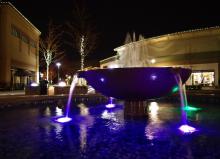HiLight in Hillsboro to Offer $55 Gig
Hillsboro, Oregon, has decided that fast, reliable, and affordable Internet access is a top priority. As they continue to fine-tune their fiber optic network plans, community leaders recently announced pricing and speed tiers for HiLight, expected to launch in 2020.
$55 Gig!
This summer, the Hillsboro City Council confirmed proposed pricing to reflect the community's commitment to bringing high-quality Internet access to each premise; HiLight will offer symmetrical gigabit Internet access for $55 per month to residents. According to the Oregonian, the rate is about half what Comcast charges. HiLight will also provide a 4 gigabit option for $300 per month, which is comparable to Comcast’s price for 2 gigabit service.
Subscribers will also have the option to sign-up for VoIP services for $20 per month, but the utility will not offer video.
Low-income households will be able to subscribe to gigabit service for $10 per month, but the community is still working out details for eligibility. Comcast’s plan for similarly situated folks allows Internet access at 15 Megabits per second (Mbps) download while providing slower upload speeds.
Like many other publicly owned networks, Hillsboro plans to offer symmetrical service to allow subscribers to take full advantage of fiber optic connections. With the ability to send as well as receive data-intensive files, subscribers are more likely to work from home, complete distance learning educational programs, engage in telehealth apps, and partake in innovative technologies.
The Timeline
The city plans to take an incremental approach and dedicate about 10 years toward completion of citywide deployment while avoiding debt. Hillsboro has decided to allocate around $4 million each year for the next 7 years toward the build. City financial experts estimate the network will begin generating revenue in 11 years and will pay for itself in 17 years.



